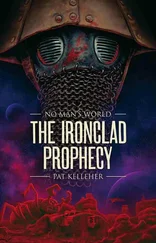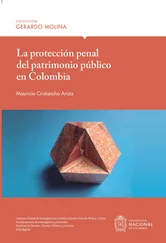Grantham’s face was drawn, his eyes red-rimmed.
“This is a nightmare,” he muttered.
“At some point we’re going to have to send out working parties to cut down trees from that forest over there.”
Slacke nodded emphatically.
“Sir,” he said. “We have potable water for three more days. We have food rations enough for perhaps twice that. Rum ration won’t last. If we’re here much longer we’ll have to start looking for supplies locally.”
“No,” said Grantham, hoarsely.
“But, sir…”
“I said no. We will return home.”
“Begging your pardon, sir, but we can’t just sit here and wait for that to happen.” He paused. “It may never happen.”
Grantham exploded. “That is defeatist talk, man, and I won’t have it, d’you hear?”
Everson took this as a further sign of Grantham’s growing instability. The man needed to believe they would be returned home. If it became apparent that their fate was otherwise he feared that Grantham would really funk it.
“Sir?” It was Jeffries. “With all due respect we may have to face the possibility that we are here for an indefinite period. While I am sure you are correct in your assumption that we shall be returned I feel it prudent that we should prepare for the worst. At the very least it will keep the men occupied. An army with nothing to do will soon become a mutinous rabble.”
Everson was surprised by what he heard. “I have to say I agree with Jeffries, sir. It should be understood by all that we shall be returned home in order to keep up morale. However we should consider sending out scout patrols. We need to know what we might face in the short term and if we can find water.”
“I could make a short reconnaissance flight, Lieutenant,” offered Tulliver. “That would at least give your men some possible directions in which to explore. I should have enough fuel, but with my observer dead, I’d need someone to spot and map-make for me.”
“Jeffries can go,” said Grantham. A smile bloomed briefly on Jeffries’ lips before fading.
“Very well,” said Tulliver. “I suggest we go straight away. There’s enough light left for a short flight.”
“You need to look for rivers, streams, lakes; sources of water. Look for cultivated fields or others signs of civilisation,” suggested Lippett.
Civilisation. It wasn’t a thought that had even entered Everson’s head until now. He had been too preoccupied with simple, brutal survival and thoughts of home. But yes, civilisation. The existence of a civilisation that might have achieved dominion over this wild and untamed country had never really occurred to him. What cities might they have constructed, what wonders might they have achieved? What marvels might they work? Surely they would recognise a fellow creature of equal intellect and extend a hand in aid? Unless they were responsible for their sudden journey and arrival here. In which case one would have to try and divine the motives for such an act.
There was a confused chatter as everyone suddenly attempted to talk over each other, each speculating on what it was they expected to find; certainly nothing to which the British Empire was not an equal.
“Gentlemen, please,” said Jeffries. “This is all idle speculation. There is no point in raising false hopes at the moment though, as Captain Lippett so rightly states, it is something we should keep an eye out for. And when I’m up in Lieutenant Tulliver’s machine I shall certainly endeavour to seek such signs as will assuage your doubts.”
UNDER THE COVERING watch of a Lewis machine gun section, 1 Section had pulled the Sopwith out onto the plain and had spent an hour trying to beat some kind of take-off strip from the tubular undergrowth there. They’d managed to clear about a hundred yards or so and hoped it would be enough. Tulliver walked the strip wincing and sucking in breath through his teeth. The ground was bumpier than he’d wished. Ideally he’d have the AM’s fill the pot holes, but here that wasn’t going to be possible, at least not this time. Maybe he’d have a word with the infantry captain.
Tulliver and Jeffries climbed aboard the Sopwith. Tulliver had checked it out earlier. There was about half a tank of fuel left. Quite what he’d do then, he didn’t know.
“We won’t be going too high today,” said Tulliver. “But you’ll have to be prepared to use the machine gun. We don’t know what kind of flying creatures are up there.”
“Oh don’t worry about me,” said Jeffries. “I’m sure I can handle myself.”
“Well, bear in mind you’re going to have to stand to fire and there’s no safety harness. Contact!”
A private swung the propeller around. It juddered to a halt. He seized the blade in his hands and swung down again. The engine caught. “Chocks!” Two more soldiers pulled the makeshift blocks away from the wheels and the aeroplane began to inch forward as if impatient to get into the air and be free of the heavy, lumpen earth. It began to bounce clumsily across the uneven plain. The jarring stopped as the wheels left the ground. Tulliver pulled back on the stick and angled the nose up as the ground dropped away. He peeled to the right and flew over the pat of Somme mud as he climbed. He was excited to be in the air again. Only here did he feel he could be himself. Over on the horizon he could make out a line of thick black clouds as he reached a thousand feet and the world below began to take on a familiar map-like feel. Far from feeling alienated by this wondrous new landscape, up here he felt as if he were in the company of an old friend. He began looking for conspicuous landmarks; the flashes of sunlight off water caught his eyes. He looked down and saw a ribbon of silver a mile or so from the brown stain of the Somme. He turned to Jeffries behind him and pointed down. “A river!” he bawled over the sound of the wind and the engine.
Jeffries formed his finger and forefinger into an ‘O’. Tulliver thought that a little odd. He’d only met a couple of other people that had used that specific gesture. Most just used thumbs up. One was an American flying with the Escadrille Lafayette, the other, more recently, was that Artillery officer, what was his name?
“Are you sure we haven’t met?” he yelled over the engine’s roar. “You seem familiar! Do you know a chap named Hibbert?”
Jeffries shook his head and Tulliver shrugged, but couldn’t dismiss entirely the feeling he knew the man from somewhere. He turned the machine and from their vantage point, the circle of Somme was sat near the head of a wide valley, enclosed by hills on three sides. On one side of the valley stretched a large forest. Beyond it lay a large plain bounded by a range of hills. The silver ribbon of water ran down from the hills and threaded itself through the forest before reappearing on the plain. If it was coming down from the hills maybe it led to some sort of—
There was a tap on his shoulder. He wiped away the oil spray that was beginning to mist his goggles and glanced back over his shoulder, Jeffries pointed down. Tulliver tilted the wings so he could see a herd of tall, three-legged creatures moving across the plain. That’s when he noticed the shadow ripple over the ground and pass over his machine. He immediately pulled up and banked so he could look around. He pointed up, indicating that Jeffries, who was sat behind the wings and had a better view, should look around. Then he saw it. A great shape above them like a flying manta ray, but it had hind legs with large talons and a long neck that ended in a small head with a wide mouth, displaying sharp teeth. It was easily bigger than the Sopwith and with claws and teeth like those could rip the aeroplane to shreds if it got close. It had obviously been following the herd of whatever-they-were and saw the Sopwith as a territorial intruder. It came at them from the side. Tulliver hoped Jeffries was on the ball. He was. Standing up in his seat he swung the Hotchkiss machine gun round and opened fire. The creature closed its wings momentarily and dropped out of sight below them.
Читать дальше












